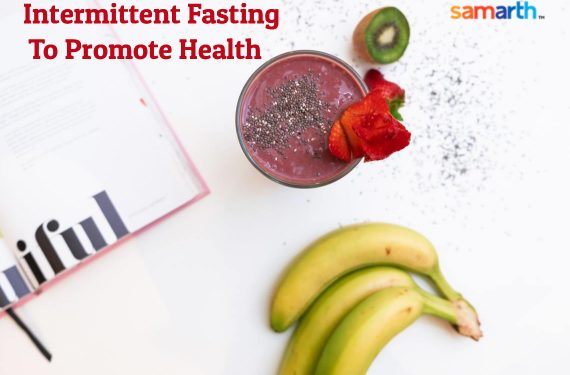In India, people are not new to fasting; there are numerous occasions on which people can opt to fast, especially considering the various religious reasons. While there are many Hindus who fast during the Ekadashis, Navarathras, Shivarathri, Janmashtami, and so on, Muslims have the sacred month of Ramzan. Many Christians believe in fasting during the Lent, and many other religions like Jains, Buddhists, etc. have also included fasting in their culture.
Many people do not believe in these rituals and consider fasting as not good for health. Especially as we age, it may be true that various health conditions and the doctor’s advice force us to give up on fasting. However, there is scientific evidence to suggest that intermittent fasting is good for health. Perhaps, as is the case with many other Indian traditions, maybe out elders did understand that it benefits our health, and hence came up with intermittent occasions for us to fast.
Note: Health is important, and therefore if there are concerns with that and you have been asked not to fast, then please make sure that you follow the same. This article is mainly meant for active seniors who are fighting chronic issues, and even then, it is better to discuss once with the doctor before adopting any changes in the diet.

Join Now >
It’s not a fad
Seniors should not take up any of the ‘popular’ dieting options floating around on the Internet and WA. Taking up any form of dieting without really understanding what it is and the consequences therein can end up in irreversible effects on the aging body. What is being suggested as intermittent fasting is a fad diet? When you take up intermittent fasting, you go without food for a longer period than you usually do. It means you will eat and fast intermittently, like following a pattern.
What is intermittent fasting?
There are many ways in which to do this. Some people give up on dinner, some lunch, some have an early dinner, and some skip breakfast. Considering that sleeping time is a way of fast, you can extend it a little longer, by having a late breakfast or early dinner. When you do this, you are actually on a fast for 16 hours, and this is what most intermittent fasting people do and is called a 16/8 method. This means you are on a fast for 16 hours where you do not intake anything, and then there is a window of 8 hours, wherein you can intake food. You may intake water and other non-caloric beverages like tea and coffee even during the fasting time, if you wish to. Few people follow this method of eating non-caloric food during fasting time as well. It is left to an individual to follow the intermittent fasting or not, and how to go about it.
The effect
When one stops eating, the cells in our body find a natural way to cleanse or detoxify themselves. This is done to trigger regeneration of cells, and also to ensure that accumulated debris is rid of the metabolic processes. For active seniors, this kind of fasting may help them with longevity. This is so because this helps break down the muscles and rebuild it to become stronger.
Scientific evidence also suggests that intermittent fasting can help with weight loss, improve your metabolic health, and provide immunity against many diseases. As we all know, obesity is the cause of many diseases, and hence intermittent fasting, helping to reduce weight is a good way to maintain it. Improved metabolic processes and better immunity will ensure better health and fighting mechanism against many common lifestyle diseases.
The benefits
Intermittent fasting helps reduce the insulin resistance in the body and restores normalcy to the insulin receptors. During intermittent fasting, autophagy happens, which means that the cells will eat themselves to ensure that only the young and healthy cells remain, and the older ones are removed. Autophagy also ensures all unwanted stuff in the cells is removed, and cells remain healthy through a detoxification process. As we all know, it is unhealthy cells that multiply that cause cancer. So, in a way, intermittent fasting can help us keep diseases like cancer and diabetes at bay.
The circadian clock, our body’s internal clock is reset every time that we stop eating, and this helps maintain the circadian rhythm, which may else cause harmful effects in the body. We are also aware of the good bacteria in our gut that helps with our digestive health. When we fast, the digestive system (good bacteria) gets some time to reboot. It helps weight loss since fat is not being accumulated as the body’s insulin levels are lower during the fasting time. Also, since there is a lack of glucose, the body starts using ketones instead. Our heart and brain prefer ketones over glucose as a fuel, because it produces less of Reactive Oxygen Species (ROS), which is harmful. These are some of the reasons why intermittent fasting can help people to improve their health.











